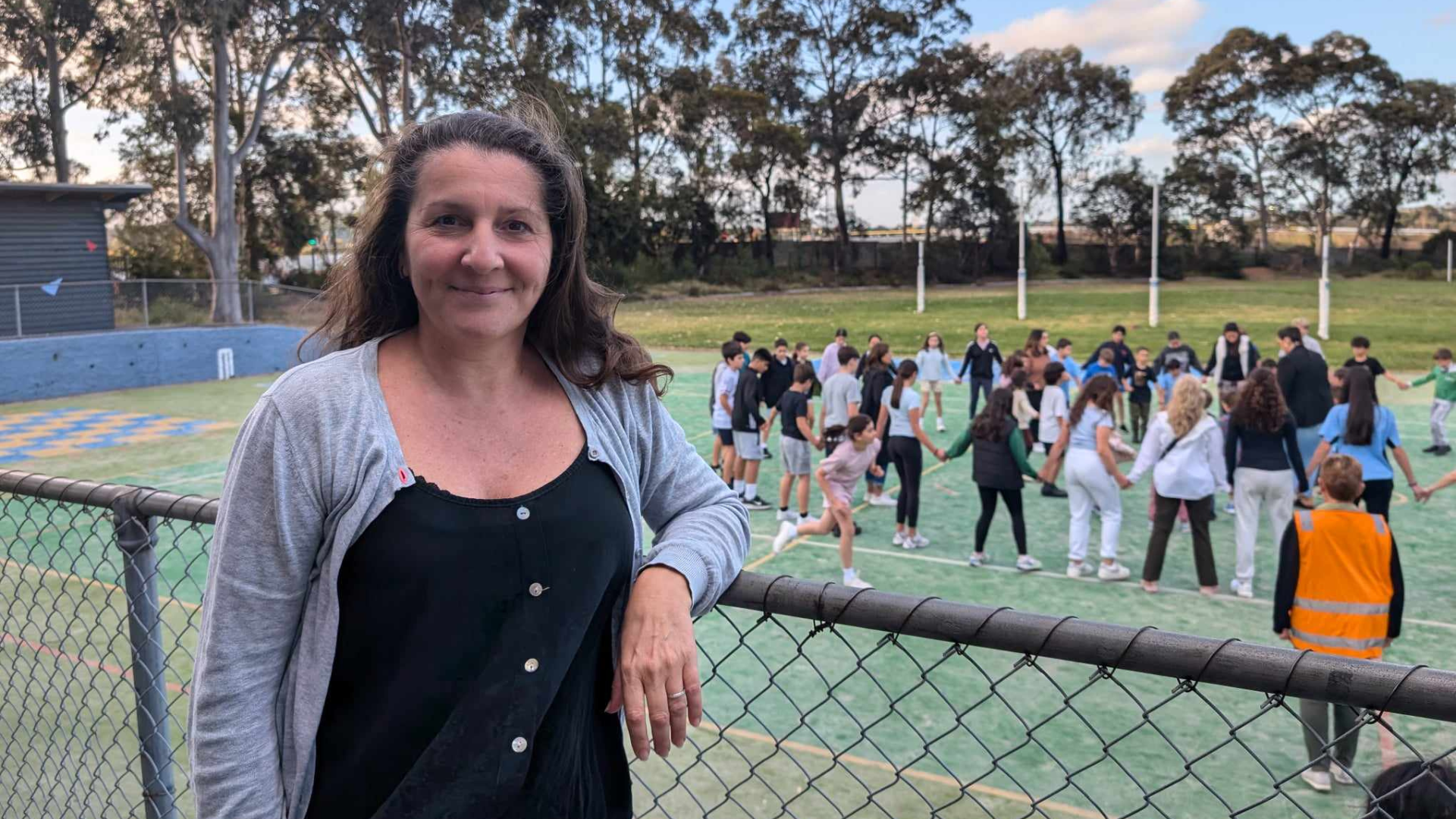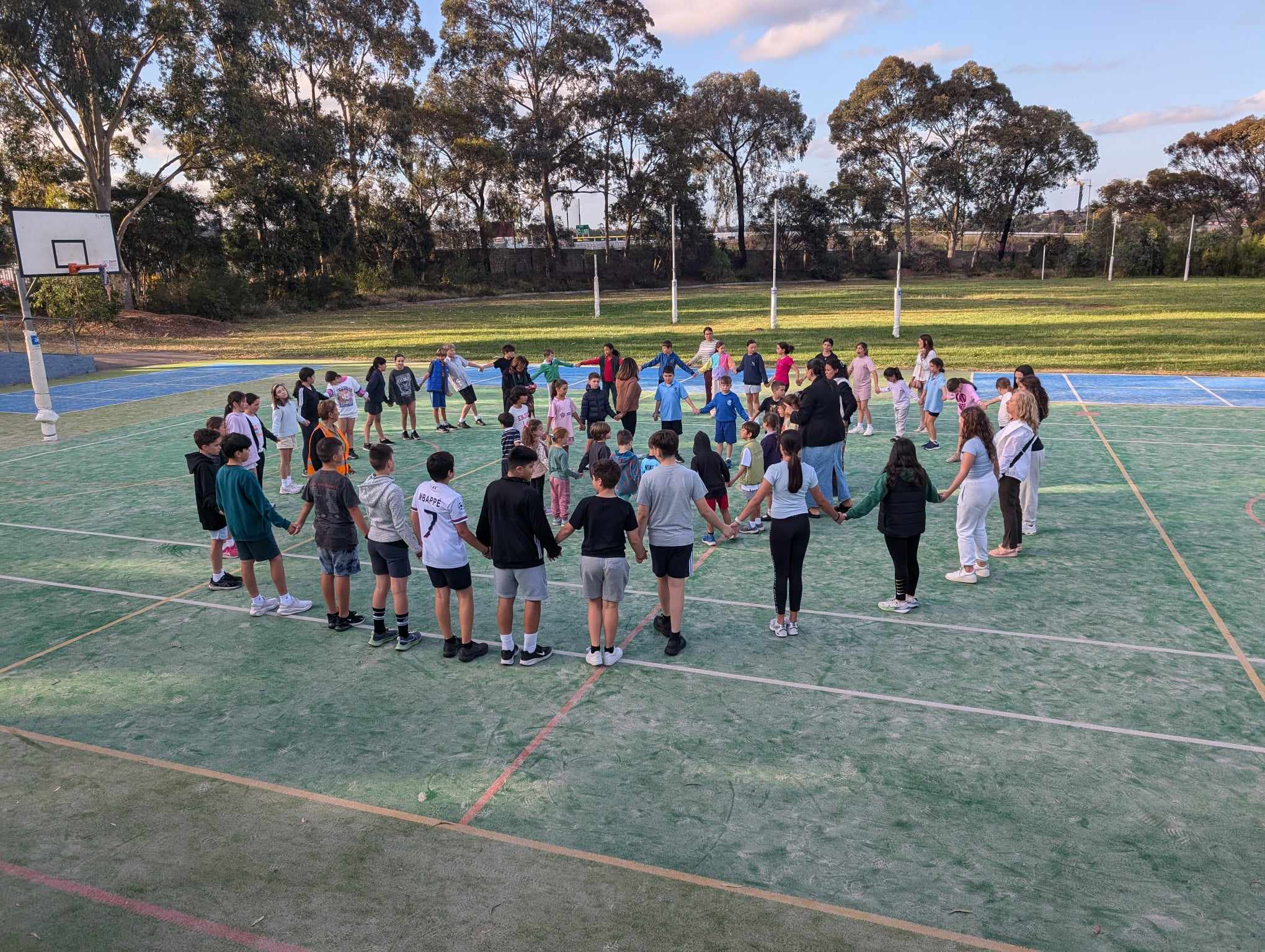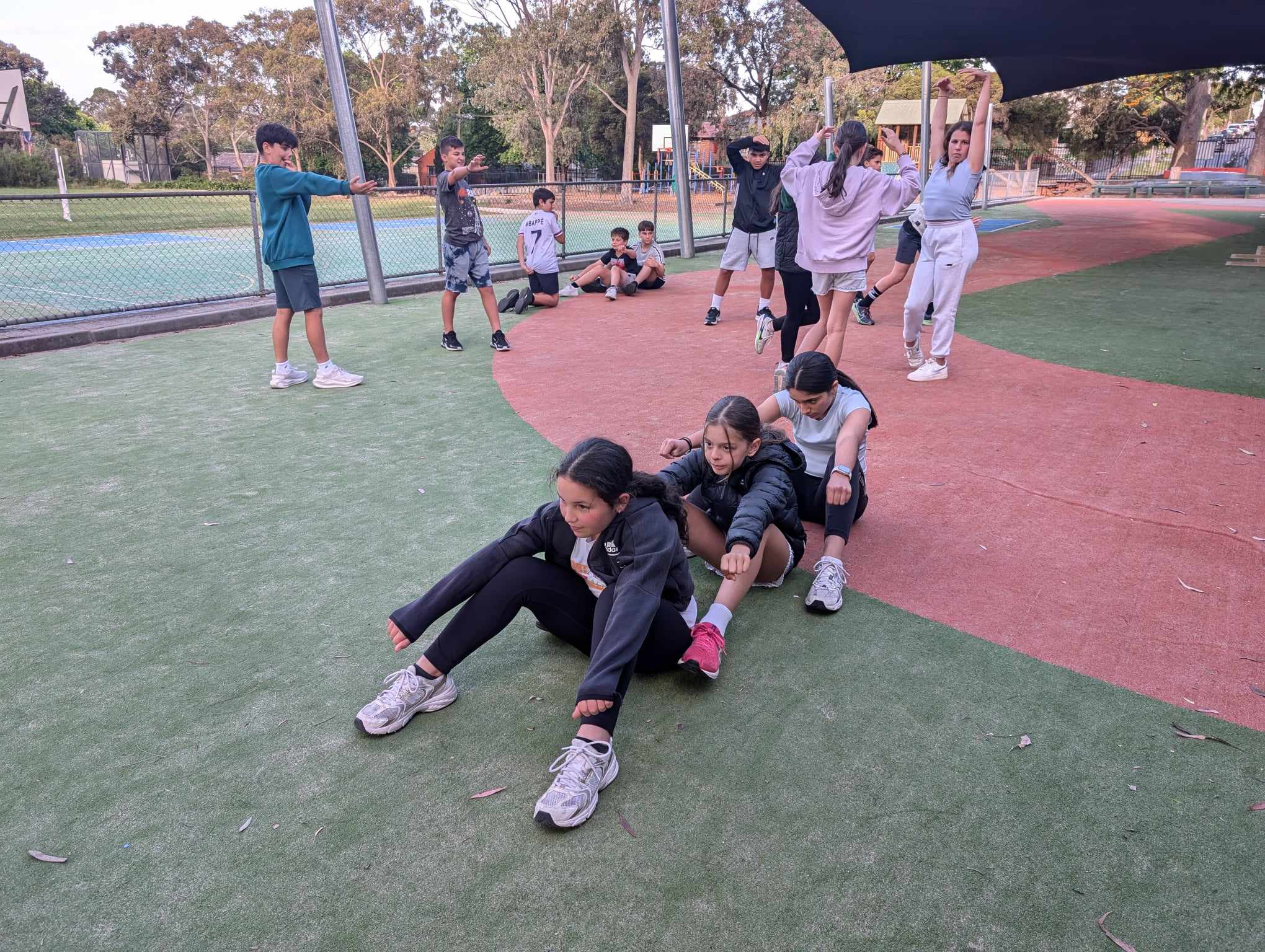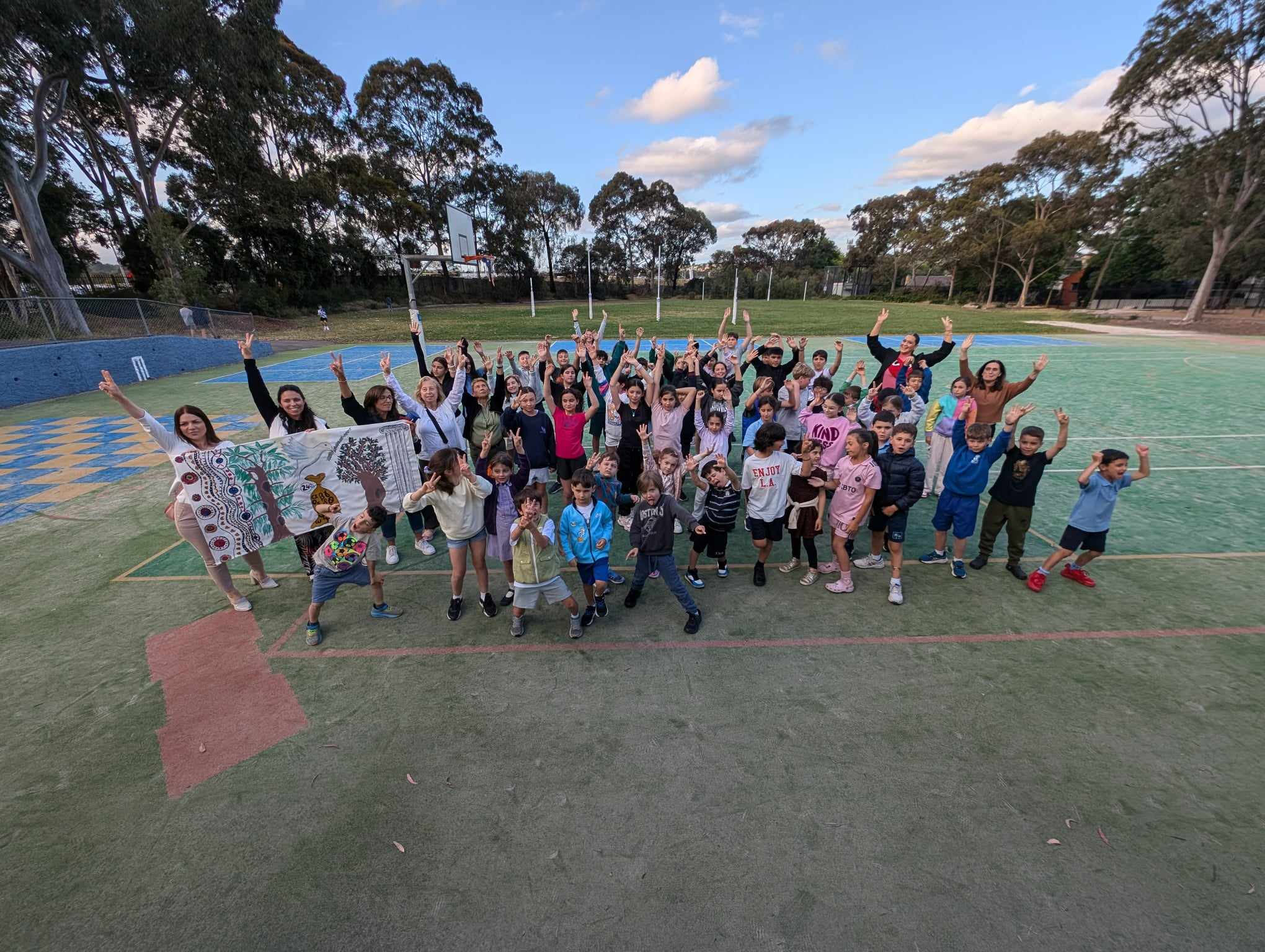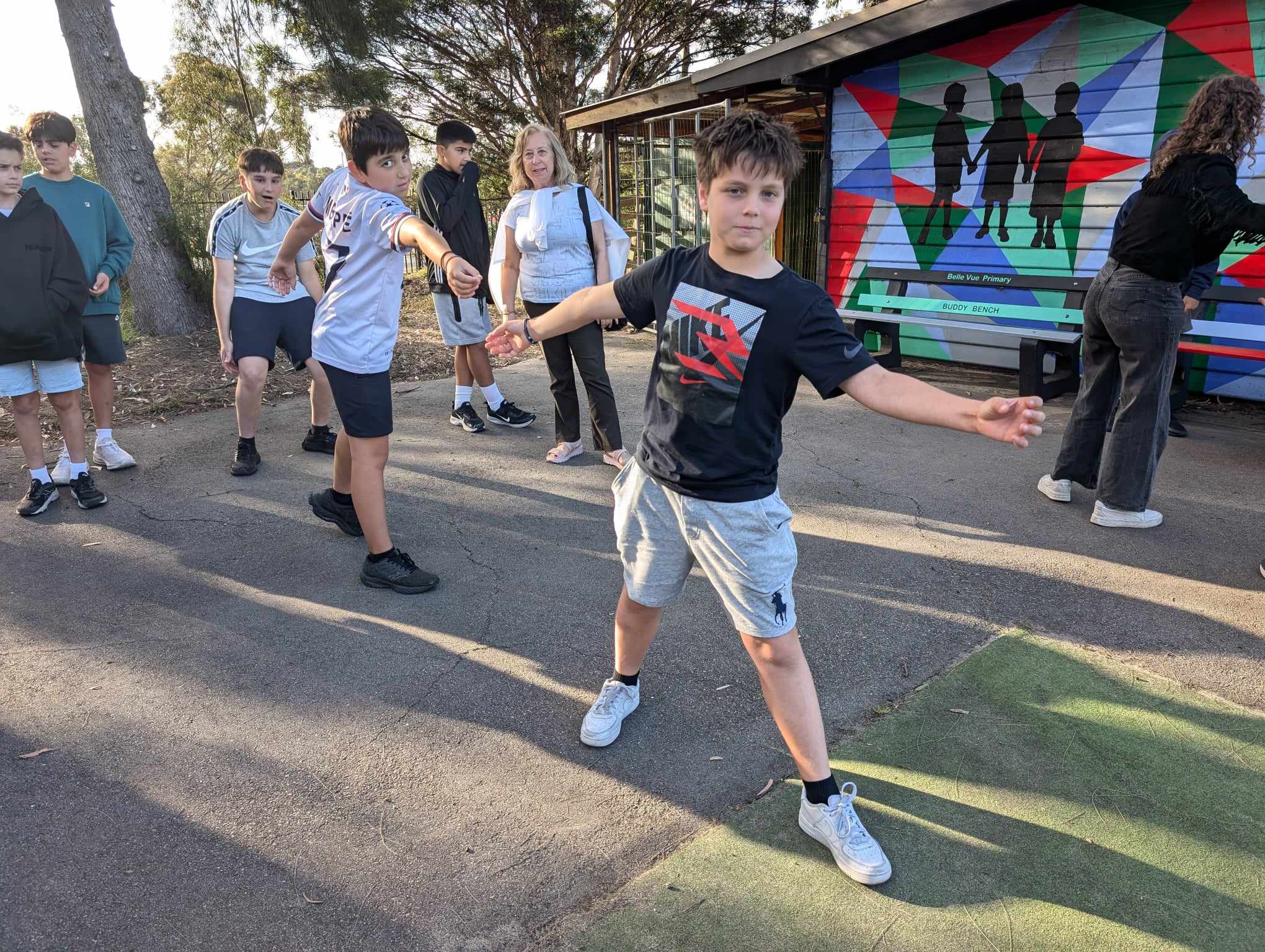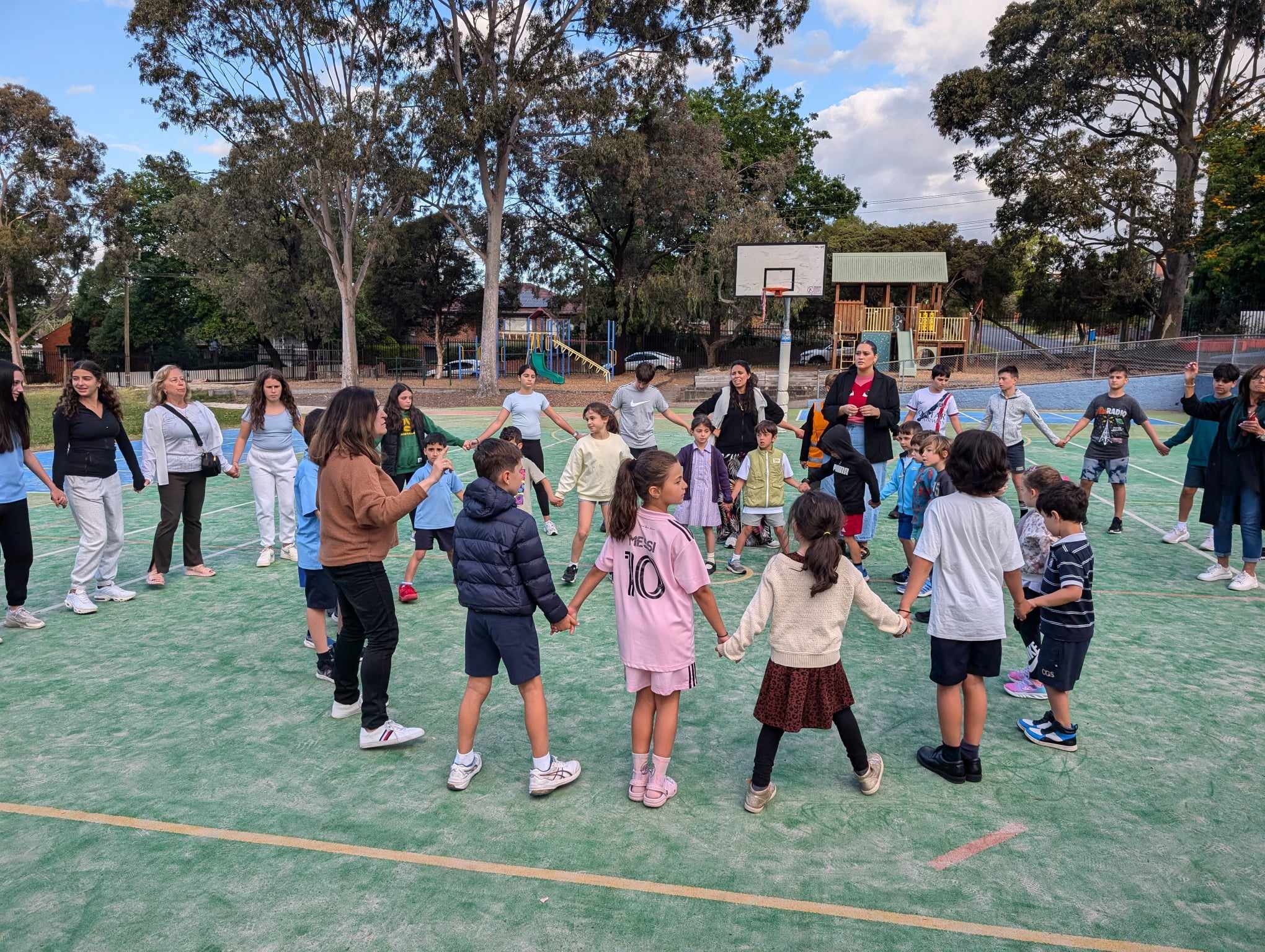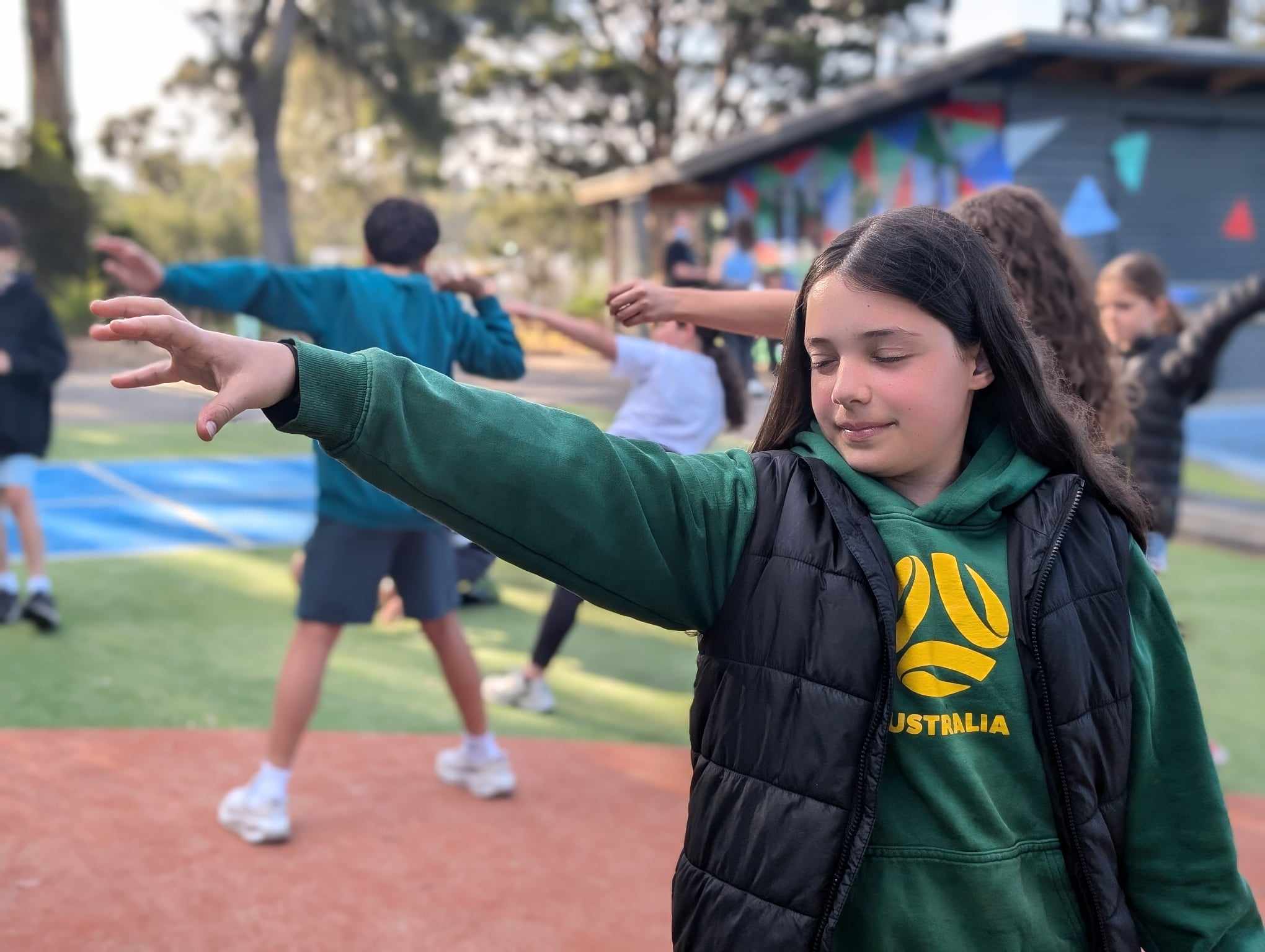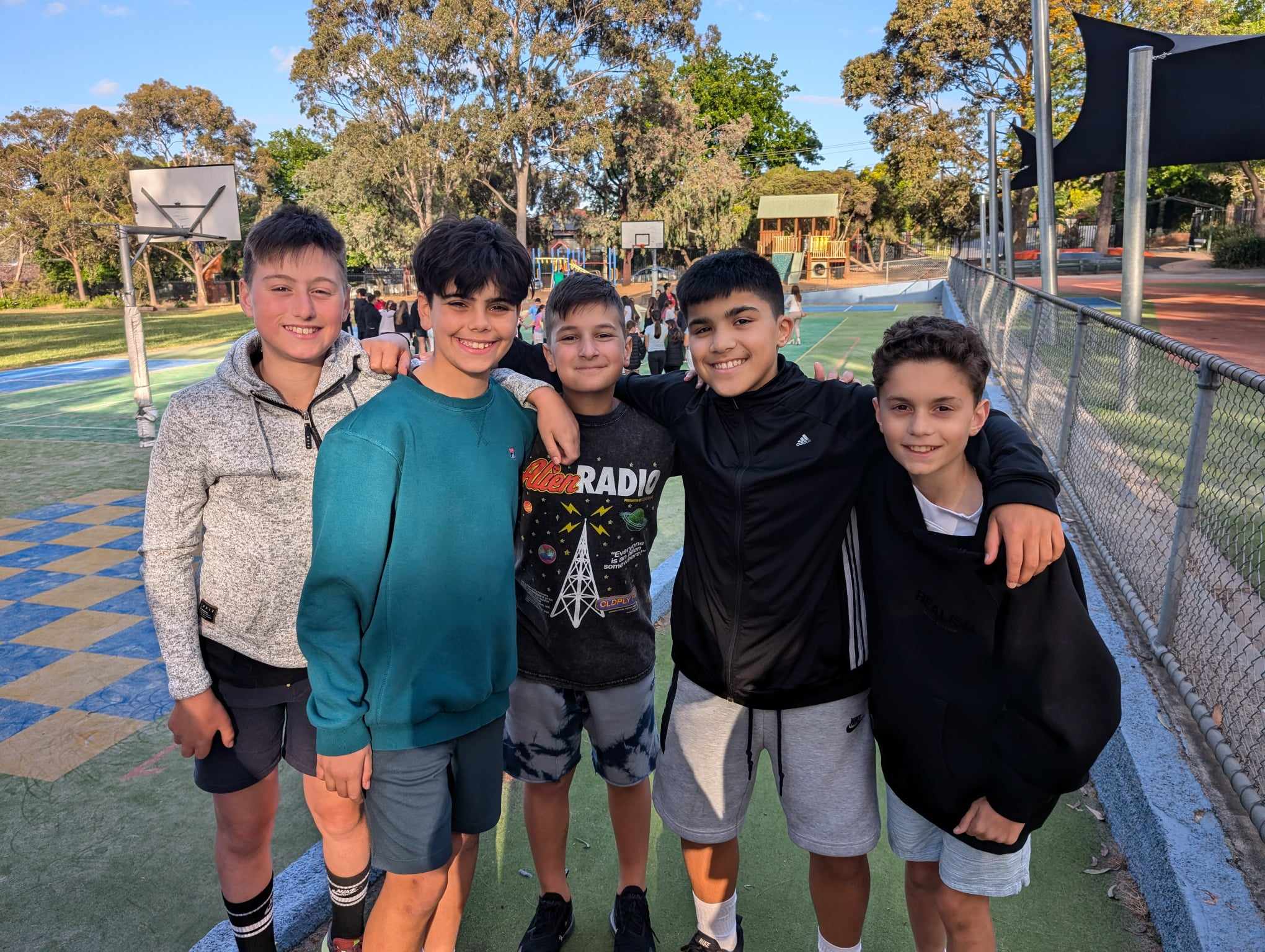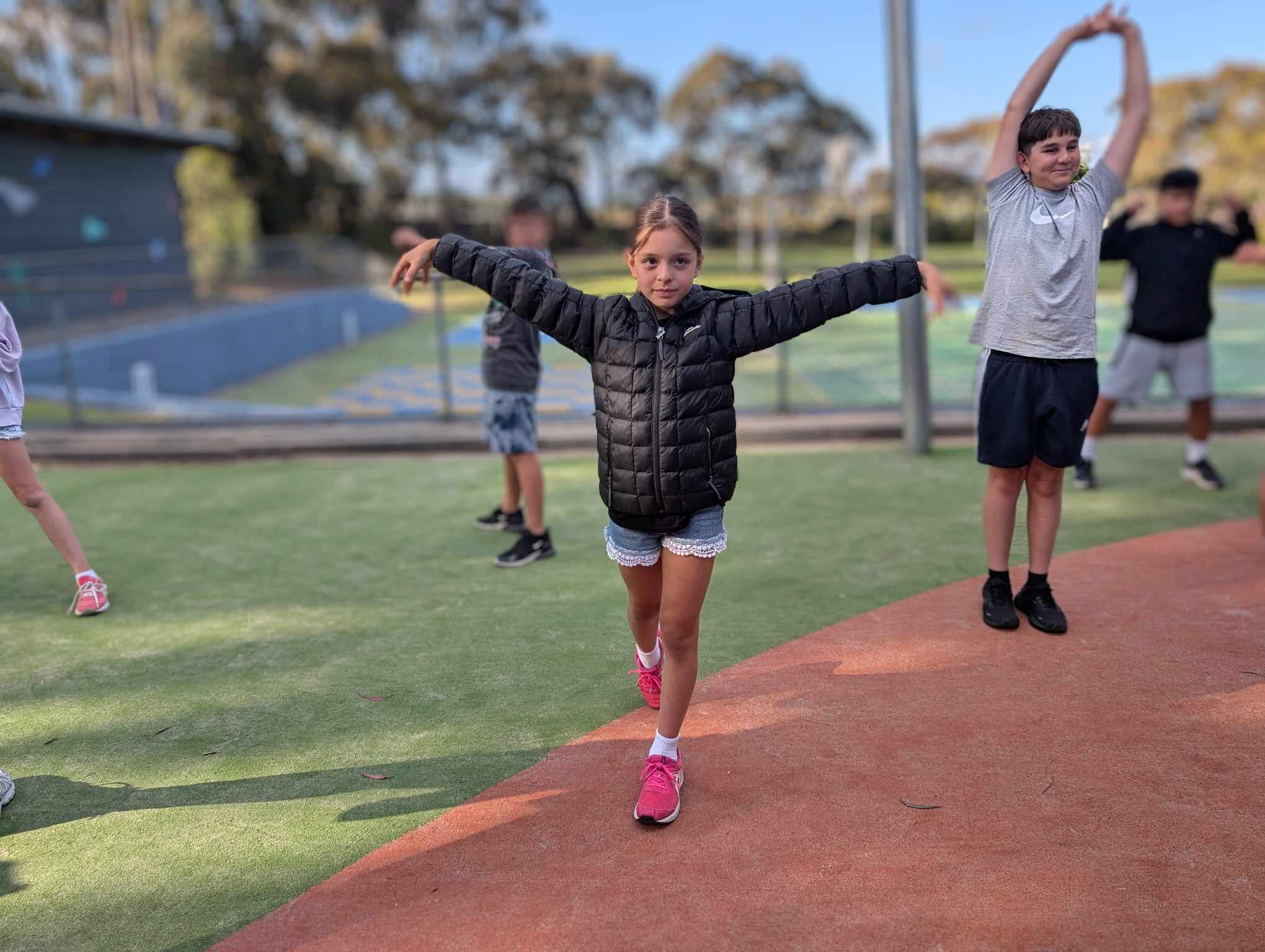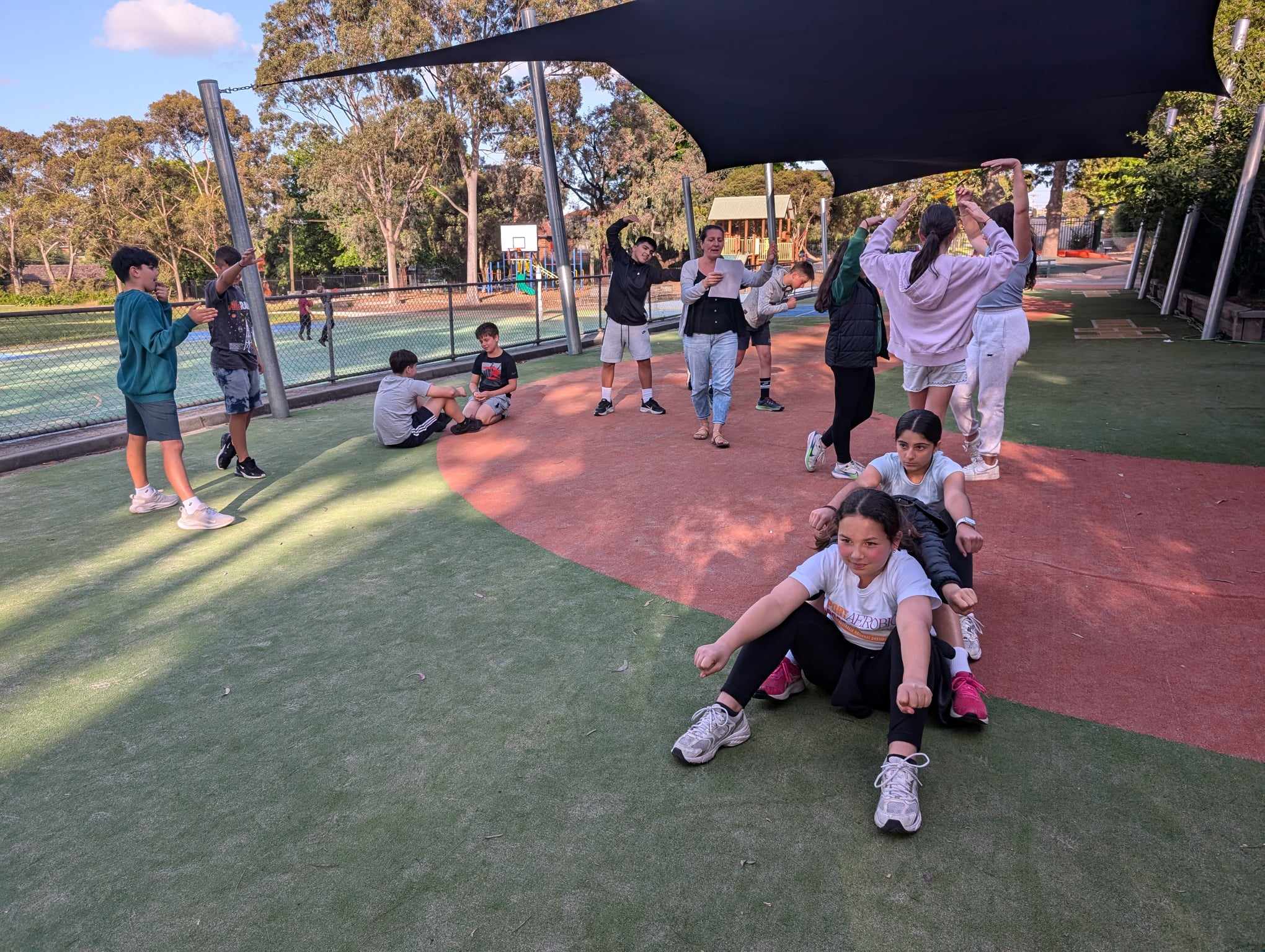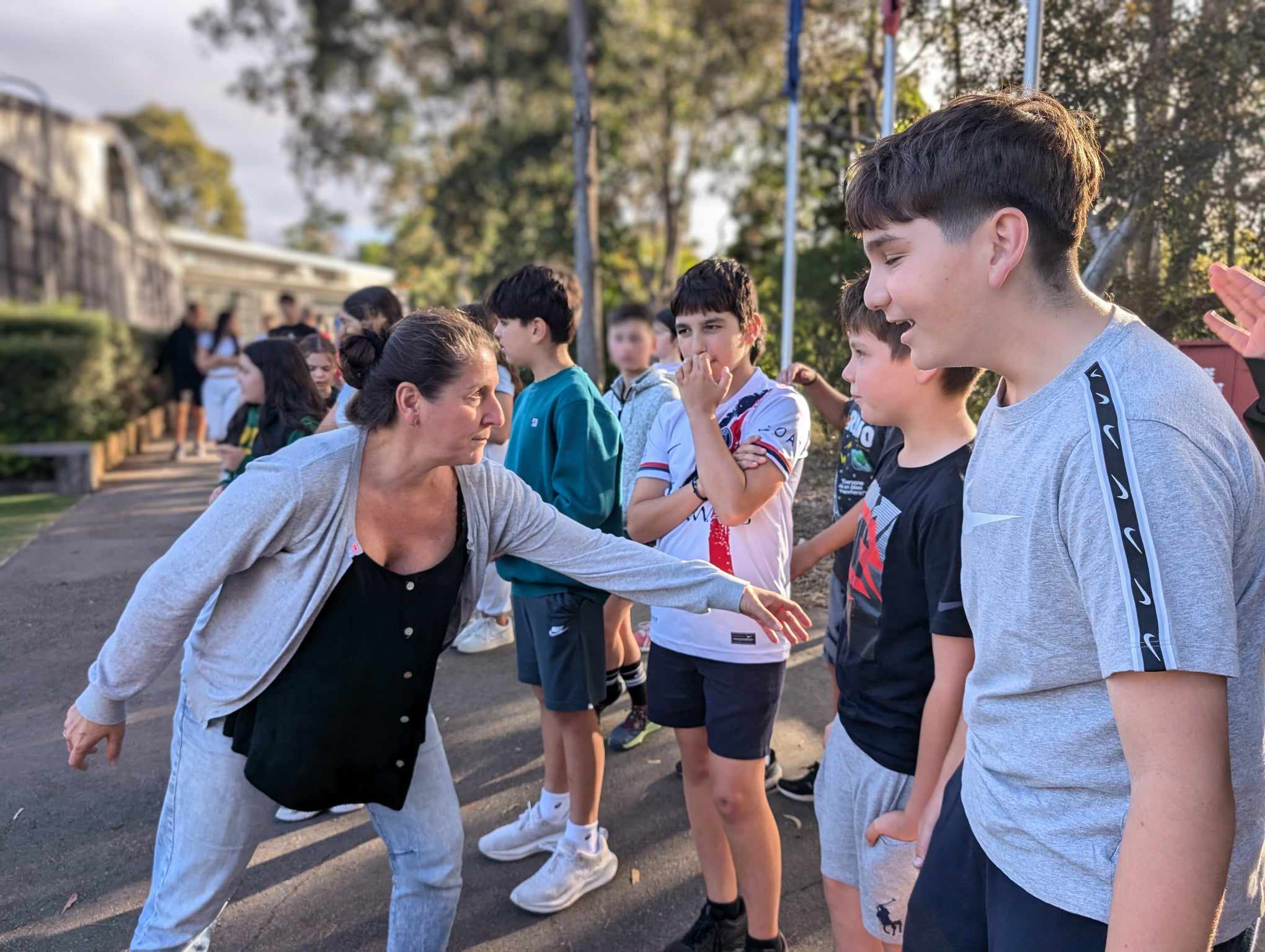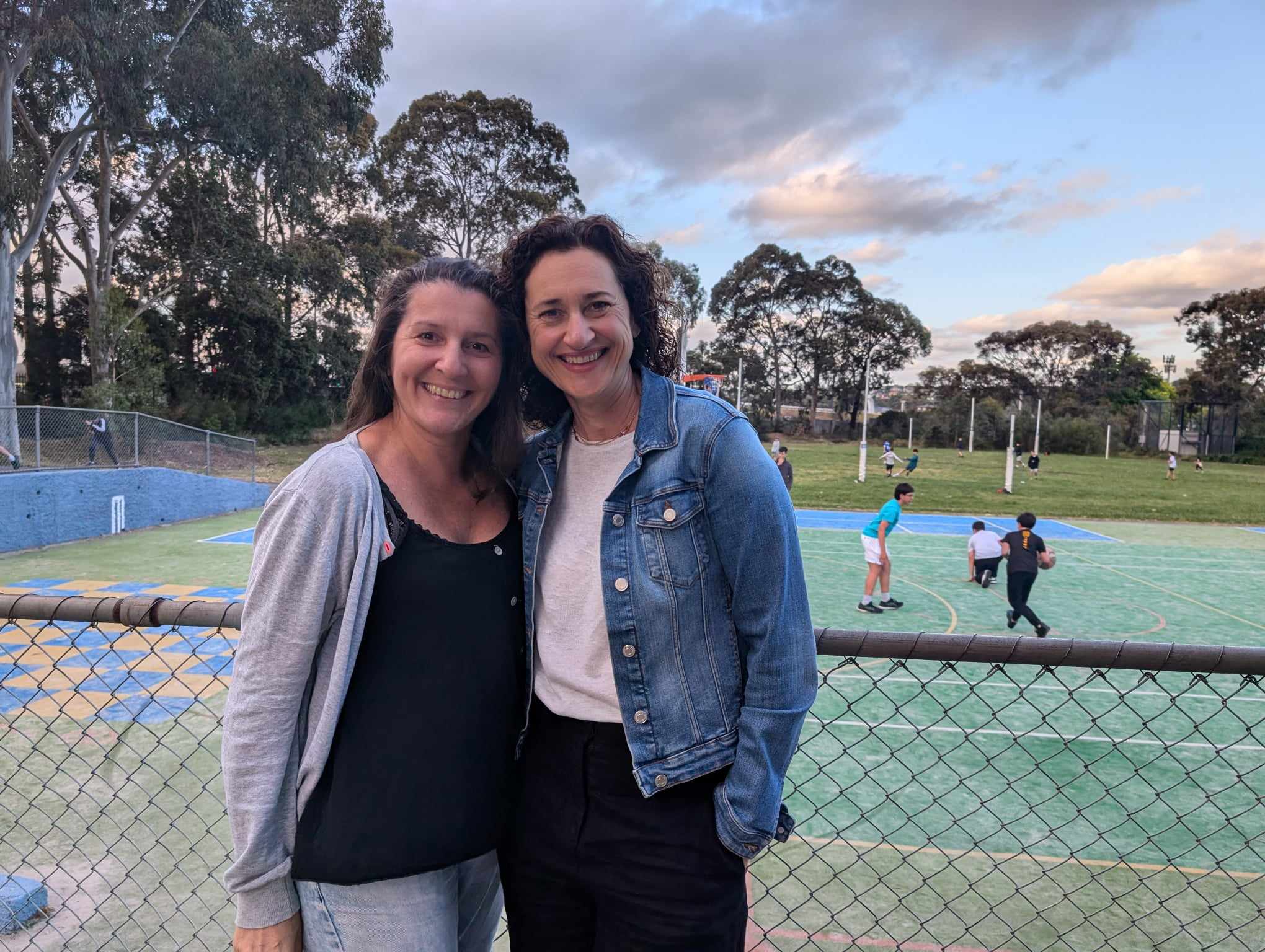A chorus of excited voices filled the air as students from the Balwyn campus of the Greek Community of Melbourne (GCM) schools practiced their Greek language skills in the great outdoors.
The students moved to the soundtrack of Vangelis Papathanasiou’s ‘1492 Conquest of Paradise,’ a timeless piece that evokes the spirit of determination. Focusing on movement and music, Greek language was incidentally used as students trained for the upcoming Greek school Olympics at Box Hill Athletic Club on Saturday, November 23.
Katerina Poutachidou, the school’s drama teacher and the driving force behind the Olympic project, juggled schedules to coordinate nine competing schools with hundreds of students. Four tell her they are pulling out at the last moment. It’s like herding cats, but Katerina doesn’t skip a beat, finding new pairings and soon enough everyone is rehearsing again.
Her experience and passion are evident as she guides students through their performances culminating in a dance of Olympic circles and ‘We are the world’ sung in Greek. Their teachers egg them on, and everyone joins in, young and old.
“Imagine students of all schools singing ‘We are the world’ together in unison, waving the flags that they’ve each designed to represent them,” Katerina says.
The project is more than just a fun activity; it has been a unique learning opportunity that combines art, movement, music and Greek language.
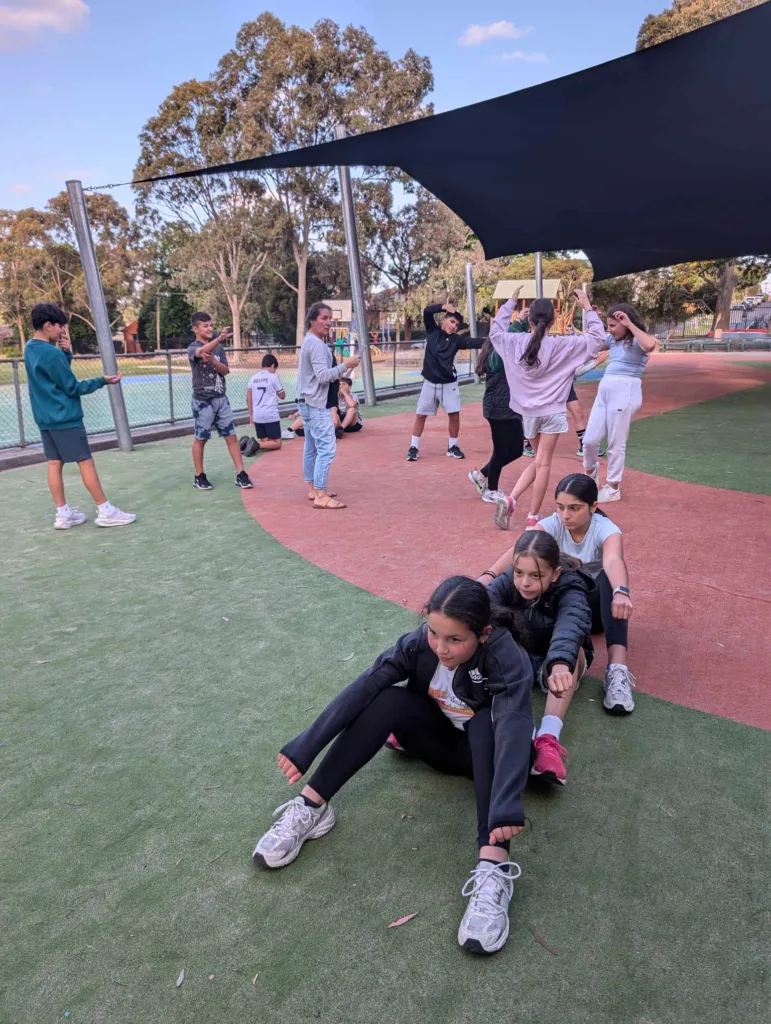
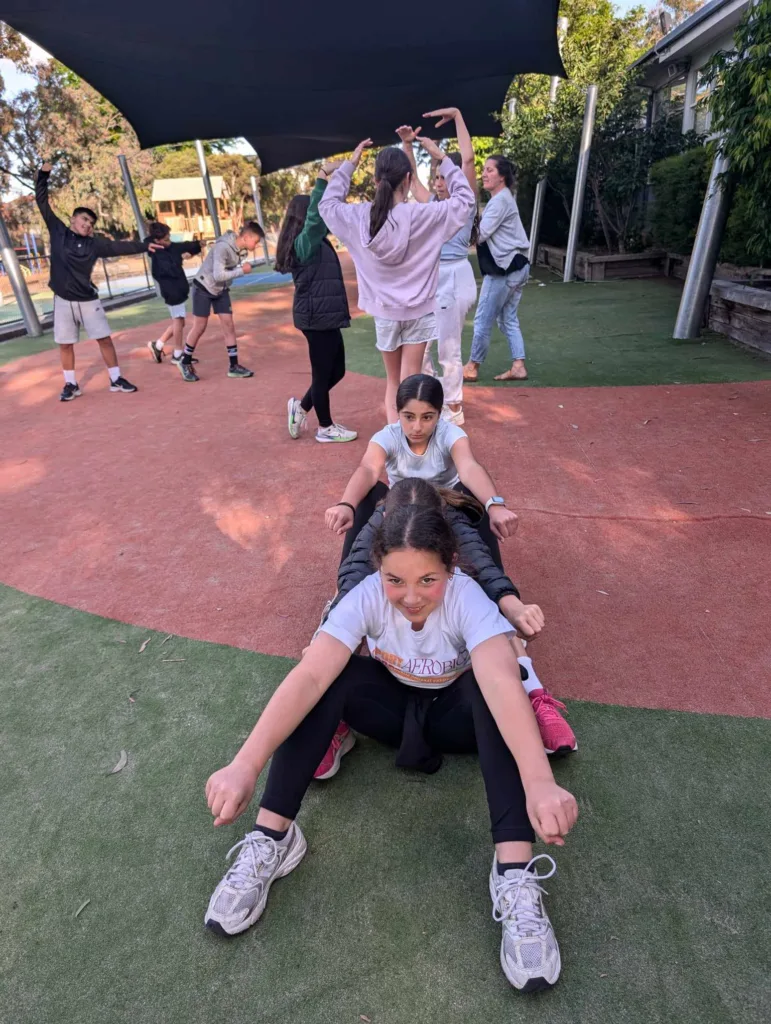
“It’s more fun than just doing orthografia (dictation) and antigraphy (copying text),” Jana Mouratidis, one of the primary school students involved, says.
Christina Emmanouil, her friend, agrees. “We like visually learning, actually doing things,” she says.
Atticus Siolis also shares his enthusiasm: “We learnt about ancient team sports in the Olympics. We learnt about water polo, one of the first Olympic sports. It’s a more interesting way of learning language. It makes me want to come to school more.”
The Olympic Museum, a central part of Balwyn campus’ participation in the Olympiad, is a testament to the students’ creativity and knowledge. It is the culmination of philosophical discussions held in classrooms about the Olympic ideals, history, mythology and sports. Teacher Mary Lefteriotis says it looks effortless, but a lot of work was done in class.
“We took the opportunity to learn about the sports and had discussions around this,” she says.
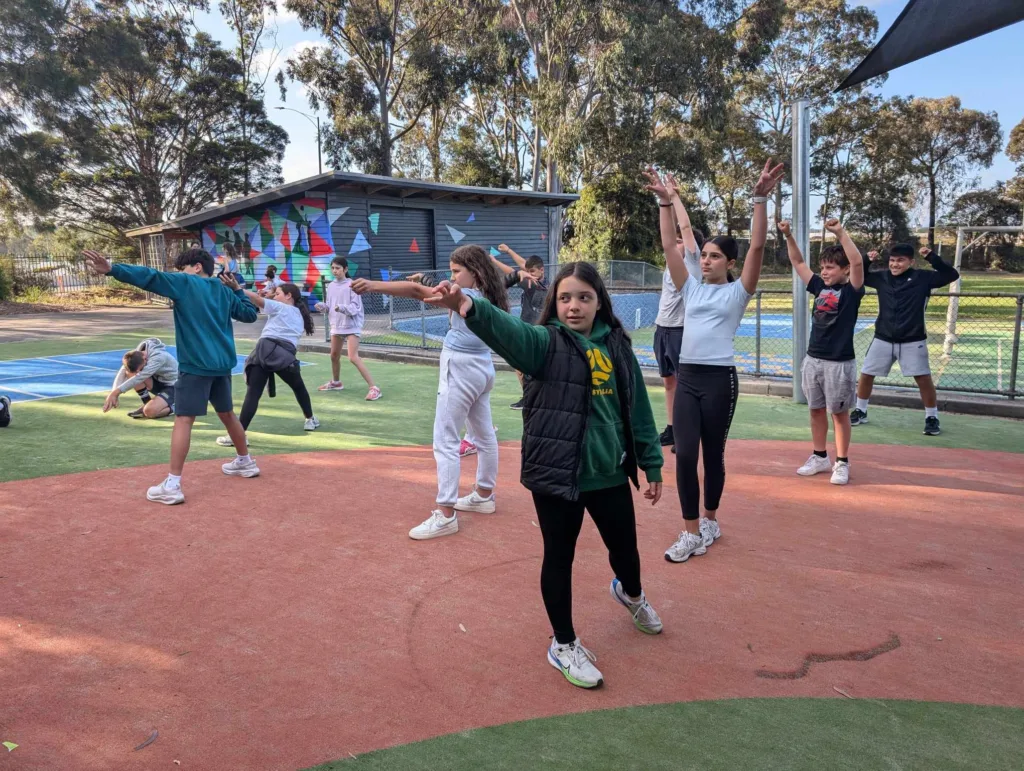
Principal Maria Bakalidou says that apart from the presentations, there will be actual sports competitions.
“This event embodies the values of friendship, respect, and fair play,” she says. “We’re proud to instill these values in our students.”
She acknowledges the hard work of the teachers and students.
“Unity and peace were ideals of the ancient Olympic Games, and we’re bringing all our schools together in this spirit,” she says, adding that it is an ambitious venture teachers have lost sleep over.
“It will be a day they will always cherish.”
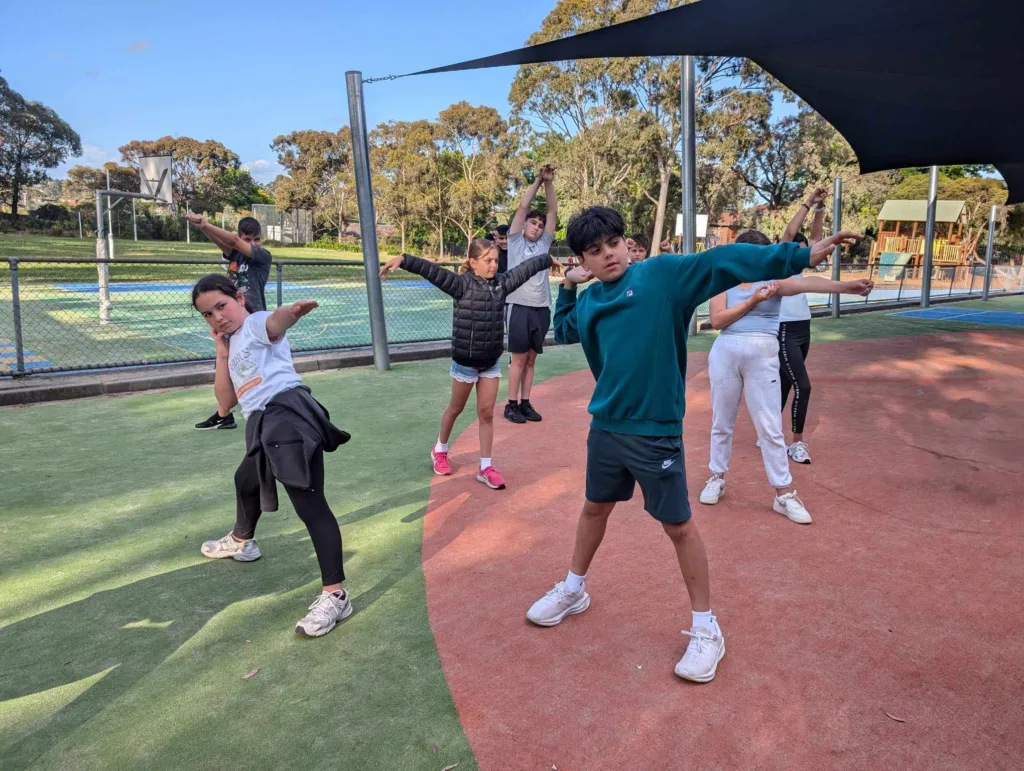
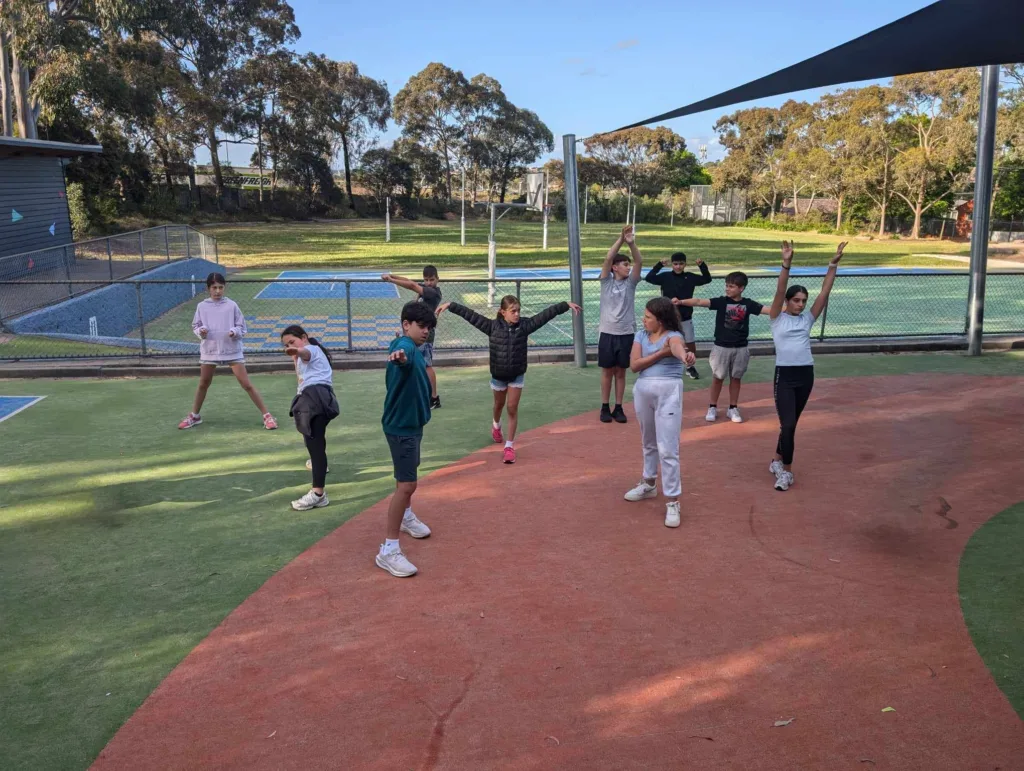
The older students will pay homage to Cyprus on the 50th anniversary since the Turkish invasion of the island. This, too, ties into the general theme of the Olympics – unity and peace.
From traditional Greek sports to modern athletic events and a presentation of Cyprus, the students are ready to showcase their skills and cultural heritage. From the lighting of the torch, games to the grand finale, the spirit of ancient Greece will live on in the hearts of these young athletes.
Admission is free and everyone is welcome for a day of learning, celebration and fun.
